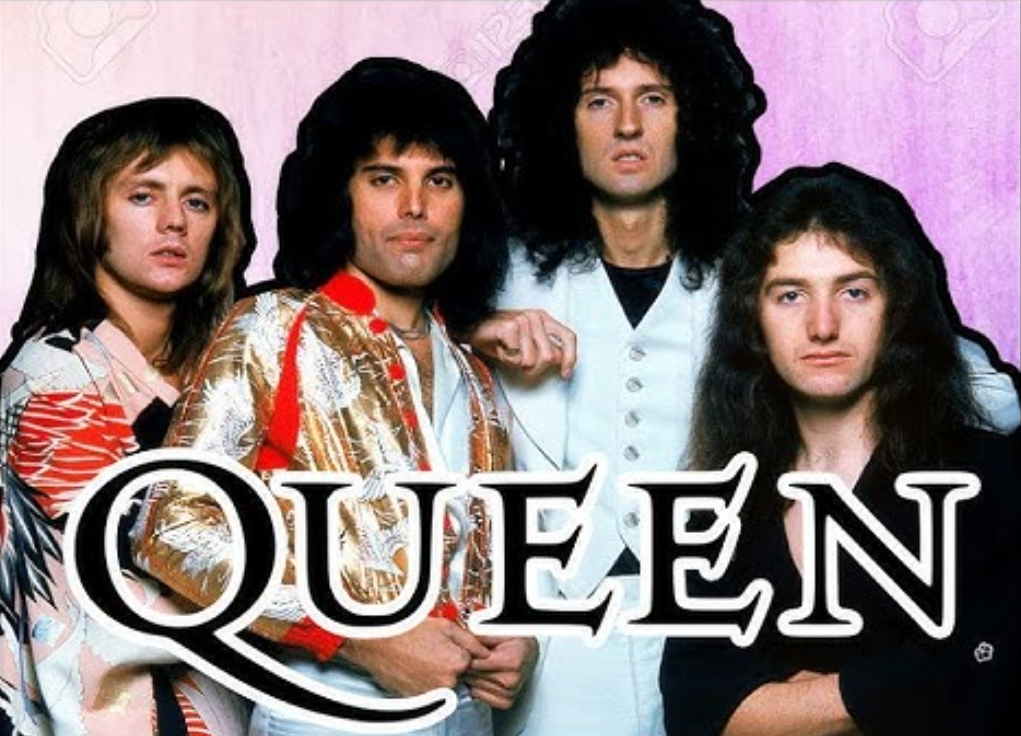
There are true musical colossi in music that have been part of who we are socially and culturally. Queen is one of them, with a unique sound, imposing personalities and a unique magic. They managed to dominate two whole decades of good music, spectacular concerts and a legacy that almost no one can boast. Queen did not have everything and with good reason we considered it was fair to make a post that did justice to their entire career.
So we begin.
First Changes and the Name of "Queen"
In 1968, guitarist Brian May, bassist Roger Taylor and singer-songwriter Jimmie Johnson formed a psychedelic hard rock band called Smile. In April 1970, vocalist Tim Staffeld left the band and they hired singer Farrokh Bulsara to take his place. They knew him through a friend. Bulsara suggested renaming the band Queen and soon after, the singer changed his stage name to Freddie Mercury.
Queen (1973)
- The British band that published on July 13, 1973 was recorded at Trident Studios and Nerea Studios in London co-produced by Roy Thomas Baker John Anthony and the members of the band, with a progressive rock style and hard rock in the songs, could highlight "Keep Yourself Alive" and "Liar".
Queen II (1974)
- This is the second one they released and where they began to experiment with other sounds but with little success.
Sheer Heart Attack (1974)
- Here Queen's style began to take hold with hits like "Killer Queen" and "Now I'm Here". It was a more accessible and less experimental album, which earned them an important place in the rock scene.
A Night at the Opera (1975)
- And finally the long-awaited album arrived, the one that was sent to stardom by the song "Bohemian Rhapsody" and which is called that because, depending on who you ask, some say it is a reference to classical works and opera and on the other hand, others say that the group Queen, well, during the week of recording, happened to see this very funny and very good film by the Marx Brothers one night at the opera.
A Day at the Races (1976)
- A Day at the Races (1976) is often considered a sequel to A Night at the Opera; the single was released on November 12, 1976 and reached number two on the English charts. "Somebody to Love" is one of the most notable songs, showing the band's ability to mix rock with gospel influences.
News of the World (1977)
- For the album News of the World they spent 2 months recording it and on October 7, 1977 the first result appeared, the double-sided single "We Will Rock You" and "We Are the Champions", written by Brian May and Freddie Mercury respectively, two songs that would become a true milestone.
Jazz (1978)
- In November 1978 the jazz album finally appeared and just like the video for "Bicycle Race" the album was embroiled in controversy because it included a poster with a photo of 65 naked women. The gift was removed from the album and was replaced by an application form to claim the poster. However the new album was harshly criticized saying that Queen did not have the creativity to make jazz. On January 5, 1979 the second album was released.
The Game (1980)
- In 1979 they traveled to Munich and began working on "The Game" with "Crazy Little Thing Called Love" established as their first single this rockabilly and was their first number one in the United States, continued with the good inertia that Queen had since 1975 and the recordings were complicated and the group stagnated creatively and Brian May said more than once to leave the group however on June 30, 1980 the album finally saw the light was a huge success worldwide reaching the top of the charts in the United Kingdom from the United States same album "Another One Bites the Dust" John Deacon was its creator and their second number one in the United States
Hot Space (1982)
- This album marked a radical shift towards dance and funk, which divided fans. "Under Pressure", the collaboration with David Bowie, was one of the most memorable hits.
The Works (1984)
- This album already showed a change in their style, but they were also successful apart from their style. It includes hits like "Radio Ga Ga" and "I Want to Break Free", which have become classics in their repertoire.
A Kind of Magic (1986)
- With a cinematic focus, this album contains the soundtrack to the film Highlander. "Who Wants to Live Forever" and "A Kind of Magic" stand out on this emotionally charged album.
The Miracle (1989)
Innuendo (1991)
- Released shortly before Freddie Mercury's death, it is a deeply emotional album, with complex tracks such as "Innuendo" and "The Show Must Go On" seeming to predict Mercury's imminent departure.
Queen quickly became known for their live shows, led by Freddie Mercury's charismatic presence, and their ability to connect with audiences in an intense and theatrical way. The band established themselves as a global phenomenon, becoming rock icons.
The creation of Queen was a fusion of unique talents and a shared vision of pushing the boundaries of conventional music. The band is still remembered for its originality, virtuosity and Freddie Mercury's unparalleled energy on stage.
Hello, I hope you like this post I wrote, so tomorrow more and better.

